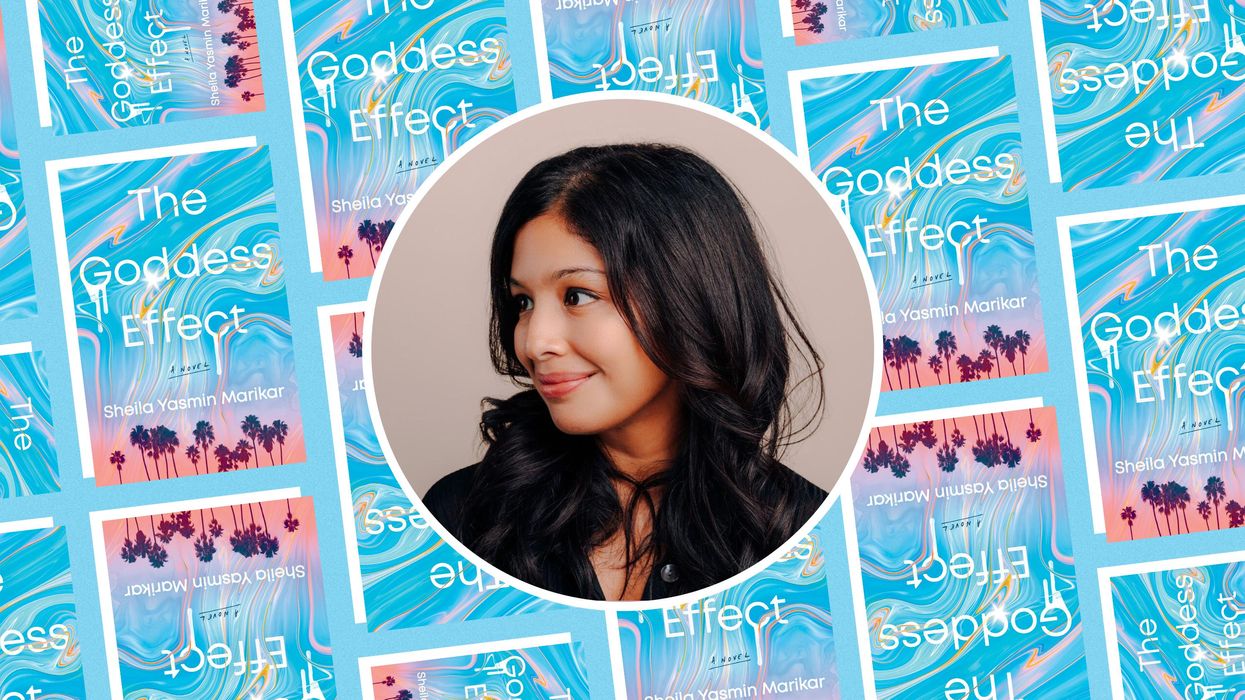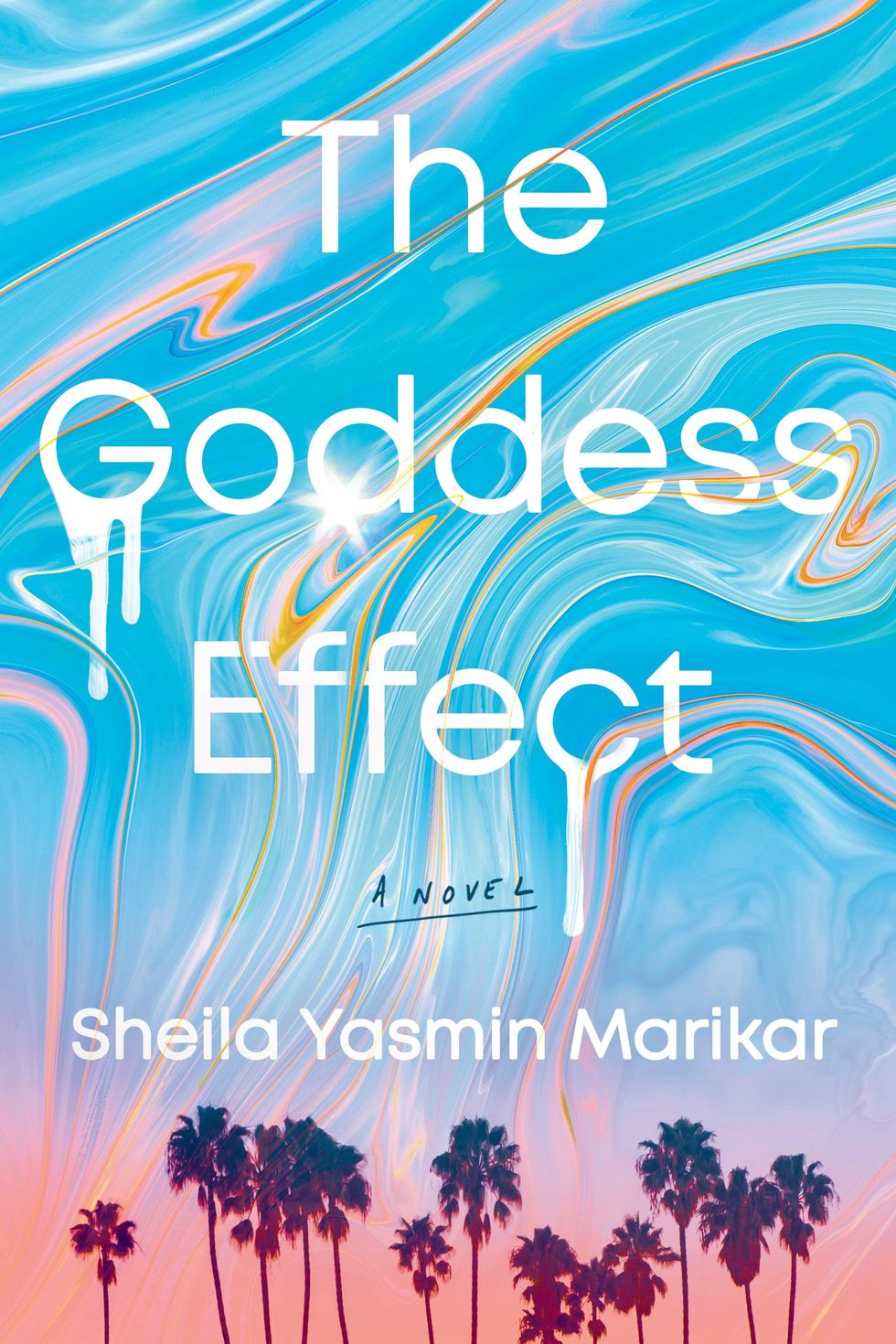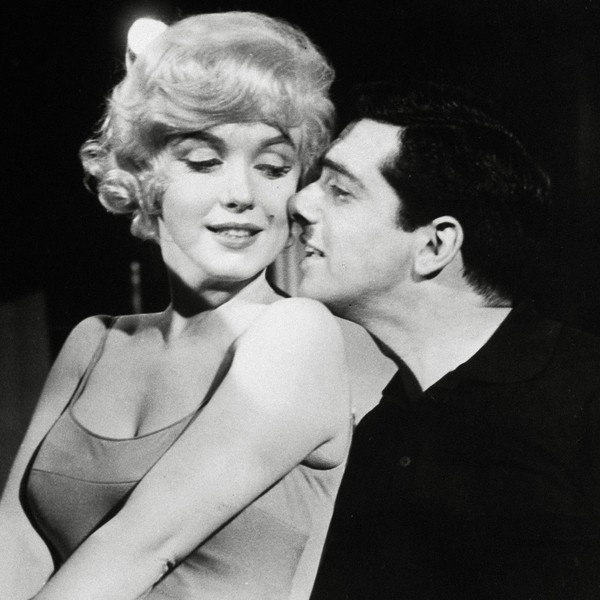Is Our Obsession with Boutique Fitness Classes Based on The Idea That We're Desperate To Fit In?
Author Sheila Yasmin Marikar's new book The Goddess Effect explores the American dream, cult-status exercise classes, and more.

Do you think I’m desperate? asks Anita, the narrator in author Sheila Yasmin Marikar’s The Goddess Effect. It’s a question that, while explicitly voiced just once, is a running inquiry throughout the story. The novel follows the life of Anita, who moves from New York to Los Angeles after leaving her media job, sick of the grueling, cyclical news industry, unfulfilling friendships, and seeking distance from her recently widowed mother who constantly encourages Anita to return to the spiritual traditions of Hinduism. In an act of desperation spawned by both the death of her father and a need for refuge from the subtle indignities that is life in New York without a lucrative or passion-centric job, Anita goes to live at The Gig, a free co-living space for young, entrepreneurial creatives trying to “make it” on the West Coast.
As weeks pass in her new home and job prospects are bleak, Anita finds solace in one activity: her daily workouts at a studio with the novel’s namesake: The Goddess Effect, run by the effervescent, thin, taught-muscled Venus and her team of similarly composed trainers. The text reads like the bodies of the rich white women who frequent The Goddess Effect: tight, dramatic, quick, and glossy—Marikar’s sentences ooze with a mix of lofty, culturally relevant narration and waste no space, keeping readers’ attention in the way only a seasoned journalist with an appreciation for word count like Marikar can write.
It’s through this depiction that readers experience Anita claw her way toward acceptance—“I couldn’t deny that, in my heart-of-hearts, I wanted to be a rich white woman,” Anita says—in The Goddess Effect social circle, which she eventually realizes is much closer to cult-status than she initially perceived. Eager to see if Anita can achieve a more satisfying life with little money, contacts, or general sense of self-worth, and break free of the suffocating success metrics put in place by the capitalistic wellness industry, readers will devour this book in one sitting.
After the book’s release, we connected with Marikar to discuss what it means to be desperate, marketing as a god-figure in the modern world, the wellness industry’s tendency to co-opt spiritual practices, and more.
There’s an air of desperation and urgency conveyed throughout the text. At the end of the story, the main character literally asks, Do you think I’m desperate? To me, the answer is yes. Are we all desperate? What made you want to write in the voice of a woman who is desperately fighting to be accepted?
“There’s this undercurrent of desperation and reaching that is apparent in so many of us. We’ve been told that there’s an American dream that we may all be able to achieve if we work hard enough and save enough money and prioritize our health. Increasingly, that just seems out of reach. And those of us who are trying to get that are on this hamster wheel, wondering if we’ve done enough or done the right things. We are constantly trying to get what we thought was going to be ours: success, happiness, comfort. Anita embodies that hunger. She wants to feel like a success, but she doesn’t know in her own mind what success means in a holistic sense. She does come off as desperate and I just picture her grabbing straws, reaching for anything that’s going to give her life and make her feel like she’s better than the day before.”
In the wellness and fitness realm, once you’ve found an instructor you have an infatuation with, it’s easy to look at them as a role model. They embody what we value in women in our society: They’re thin, white, and they have a sense of composure. The book really gets you to interrogate one’s relationship to fitness trainers.
“When I think about the instructors I've idolized in the past, there’s one woman that I'm thinking about [in particular], one who I would schedule my life around so I could go to her classes. She was just cool. Nothing affected her. She never got too close. She was personable, but she never showed a hint of uncertainty around herself. My immediate reaction has always been to idolize the one that seems to have it all together. As women, we're not generally allowed to make a scene and be our messiest selves in public.”
Fitness can bring a sense of stability to disorder and it can act as an antidote to depression and anxiety. But in the book, we see how one’s logic can become clouded when buying into the wellness industry. It can lead you to do things that don’t make sense for your lifestyle, like signing up for the class you have no business spending money on because you want to get the feeling it brings you afterward. It’s addicting. I’m wondering what you think makes us so susceptible to the cocktail of exercise, scented towels, and coaches who are chanting at you. Is this our modern replacement for a religious experience?
“As our country has become more secular, people are trying to fill holes that religion may have filled before. A ritual like going to church or temple, if you don't have that, you’re looking for something to give your day shape and focus. Going to a seven o’clock in the morning workout gives you structure. But I also think it can go many ways. When I lived in New York, for example, there was a particular bodega where I would get my coffee. Those things can give your day structure as well; it’s a routine. You feel safe in your routine.
“Right now, I’m in a personal rut with my own workout classes and schedule. I was doing megaformer for a long time, and I don’t know if the studio that I was with is the one I want to keep going to. I could go for a run. I have weight training equipment at home. There is no reason for me to be seeking out another studio to workout at. But at the same time, you think it’s going to give you discipline you wouldn’t have otherwise. We’re all in constant search of that silver bullet, asking what is the thing that’s going to make me feel better that isn’t going to require me to think long and hard about my own impulses and lack of self-control? What can I do on the outside to try to feel better inside without really addressing any of the stuff inside?”
This would be a great time to talk about Anita’s mother, who acts as a foil to Anita. Her mother is trying to get her to implement the Hindu spiritual practices that could be helpful in Anita’s life. But Anita resists, preferring to consume the re-packaged and whitewashed version of these practices through the Goddess Effect classes. Anita’s desire to “be a white woman” is prevalent throughout the book. Why does Anita need her family’s long-standing ideas to be sold back to her? Is this part of the American dream mythos?
“Anita has internalized a lot of otherness. She gloms onto all of these white women who are conventionally attractive, and who also remind Anita of the girls that she wanted to be friends with when she was growing up, but as an Indian girl felt separate from them. She’s giving it her best shot to come to LA and become this LA cool girl. And in her mind, an LA cool girl does not eat Indian food nor does she worship these Hindu gods that her mother has sent to her. She is going all in on The Goddess Effect and these new age versions of wellness. She’s not leaning into her heritage at all.
“I started writing this in 2015 and it evolved a lot over a series of revisions and some of the references changed to become more contemporary. I think that embracing one's own cultural heritage, whatever it is, has become a much more trendy thing. People of different backgrounds are doing this a lot more than they were 10 or 20 years ago. It’s interesting how Anita is able to see Hindu traditions co-opted by the Goddess Effect, and it irks her, but it doesn't make her think, my mom is a conduit to the real thing. She's just not ready for it. She needs this more diluted, consumerist version of Hindu practices that are being put into a workout class to help her realize that her culture is something to be celebrated and she shouldn’t be denying it.
You wrote on page 33, ‘After fitting my direct-to-consumer sheets on the direct-consumer mattress and shoving my direct-to-consumer suitcase in the closet, I assess the rest of the room. Honestly, that line made me feel embarrassed for myself. It demonstrated how susceptible this main character is to marketing and, consequently, how susceptible we all are. I’m wondering: is marketing our God? Why are we all so easily influenced?
“The one thing that maybe everyone in our culture can agree on is the power of marketing. I spent half of Black Friday refreshing the Skims website, trying to get bodysuits that I don’t need in colors that I don’t even like because I got one and now I’m convinced that somehow the Skims bodysuit is going to save me. I'm very aware of how susceptible I am to marketing. I mean, I can get a bodysuit from anywhere. Why do I want that one? Because it’s Kim Kardashian’s [line] and she is a cultural icon. I want to get the thing that Kim made because in some way it makes me feel like I’m part of something.
“There’s been a profusion of brands over the past 10 years. They reflect our culture and they influence the things that people read, watch, and eat. That's all due to marketing. For me, putting in brand names and references in the book was important to me, because when I'm walking through the world I notice if someone has, for example, the Cartier Love bracelet. We adorn ourselves with a variety of things, and they say who we are. The brands and labels matter.”
One of my other favorite lines is on page 90, where you write, ‘Was it bad that my guiding lights were Sex and the City and Instagram?’ I feel like a lot of women experience insecurity when their lives are not living up to these specific cultural tentpoles, despite them being fictional and exaggerated. Are you trying to wake readers up by writing out thought processes that, sometimes, are too embarrassing to say out loud?
“I’m probably trying to wake myself up. There’s a rational part of me that knows things like religion and meditation could be good for me. But then there's another part of me that just keeps scrolling on Instagram, wondering about my next workout, about the next external validation I need. I think it goes back to the fact that so many of us are just looking for a way to live our lives, and be better, more productive, and happy. We’re getting information from all these sources: TV, books, movies, social media and we choose to put some on a pedestal and say I want my life to look like that.
“I watched Sex and the City in college and it made that deep of an impression on me that I continue to think about Carrie’s life as a writer in Manhattan and how she was able to afford that apartment on her one-column-a-week salary. If you, as a writer, compare your existence to that, of course you’re never going to measure up.
“Even when you know the right thing to do it’s hard. I know that if I wake up at 5:30 in the morning and I write for two hours then workout and then write some more, I’m going to feel really good at the end of the day. I have not been able to do that in a long time. That’s just human nature. We’re not optimized like robots. And that’s why I think that we’re constantly seeking shortcuts or inspiration.”





